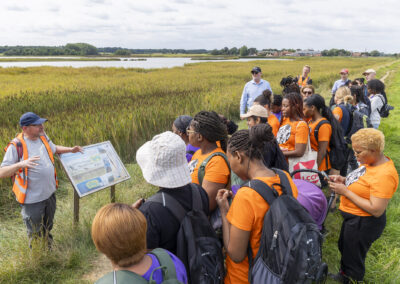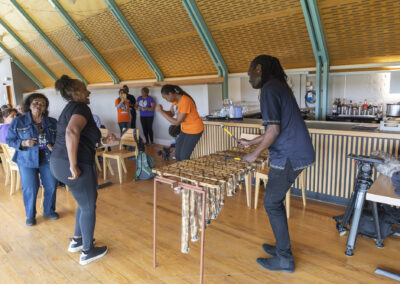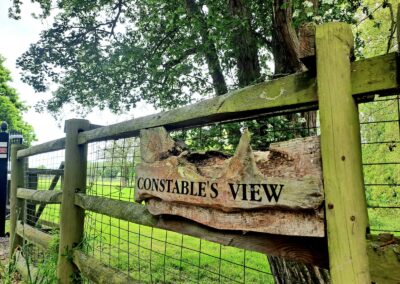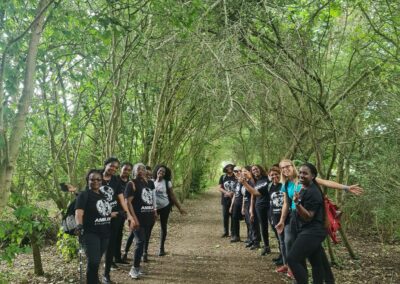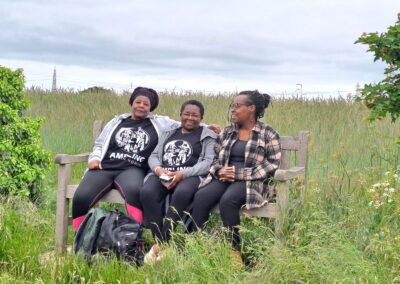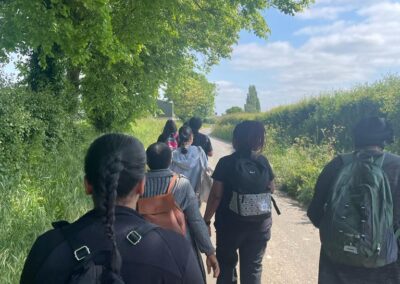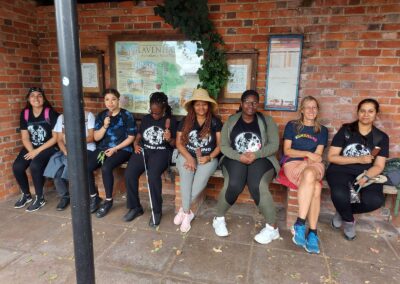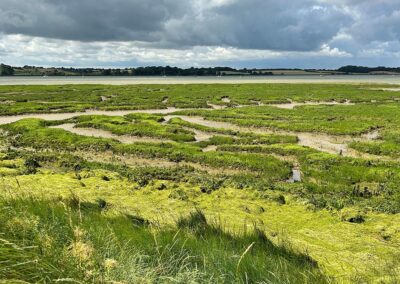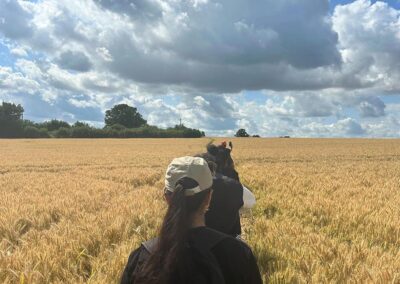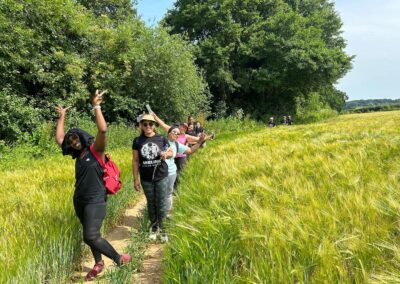Women’s Health
PROGRAMME


Ambling African women
Black and minoritised women are more prone to physical ailments such as hypertension (Kalinowski, et al., 2021) as well as mental health struggles such as chronic stress (NOVA, 2020).
Furthermore, the 2020 Sport for all Report shows that people from black and minoritised backgrounds are more likely to be physically inactive than their white counterparts. This research stresses the need for black and minoritised women to have increased access to provision that promotes both physical, and mental health. Our ‘Ambling African Women’ group meets this need and breaks down socioeconomic barriers that prevent black and minoritised women from accessing all that these spaces have to offer.
Our goal is to bridge the gap between black, migrant, minoritised women and accessing green spaces. Almost 40% of people from ethnic minority backgrounds live in the most greenspace deprived areas, compared to 14% of White people (Friends of the Earth, 2020). The women we work with are a part of this statistic and we hope to facilitate a way out of this unfortunate reality. Through weekly ventures into the country and seaside, we hope to see beneficiaries with improved mental health, physical health, and increased awareness of the spaces they have access to.
We have embraced a partnership between us, the Areas of Outstanding Natural Beauty, and Suffolk County Council’s Green Access Team. This allows us to explore areas around Suffolk that we would otherwise have no knowledge of.

BME Women Carers
Carers from Black and Minority Ethnic (BME) communities, work tirelessly in support of those they care for, with the burden of care heightened with of COVID-19 virus. BME women carers often take on this substantial responsibility without pay or recognition causing a substantial detrimental impact on their health and well-being.
While BME and white carers face similar difficulties in their caring role (namely high levels of stress and difficulties securing paid employment), BME carers are known to experience unique challenges in accessing support services due to lack of self-identification among BME individuals of their status as carers thus leading to an absence of policy recognition of their needs, replaced by stereotypical assumptions of how their needs are and how these should be addressed.
Phoebe has created a new project which is designed and responsive to BME Women Carers’ (BWC) lived realities. We will be offering counselling services, support group networks, group and family therapy, casework, English as second language lessons, referrals to viable support centres for any other further support that the BWCs may need.
Phoebe will also undertake to raise awareness on the nature of care work, its effects on physical and mental well-being of the BWC as well as any support packages that may be available to BWCs by various institutions including Suffolk Council
- Training and creating toolkits for:
- conducting culturally competent assessments should by government/local council staff for undertaking community care/carer assessments;
- cultural diversity is to avoid to avoid racial stereotyping and profiling;
- gender, racial and cultural sensitivity in handling BWC assessments; and
- how to assess in the event of a language barrier (provision of interpreters).
BME Cervical Cancer Screening
Research indicates that women from BME backgrounds are less likely to attend cervical screening than White British women.
BAME women were more likely to be non-attenders than white British women (44–71% vs 12%) (Marlow et al, 2015). This is largely attributed to immigration status, language barrier, poverty, low education level and previous experiences with racism and discrimination in the public health system.
Having identified this gap, Phoebe has built strategic partnerships with local community clinics and charity organisations to facilitate ease of access to cervical cancer screening. Phoebe will provide transport to and from the screening appointments as a way to assist women who cannot afford the train/bus fares to designated screening points. Phoebe will also embark on awareness raising and de-mystification of cervical cancer through social media campaigns, advocacy, sign posting and community education. We will also train our community champions on the fundamentals of cervical cancer and the importance of cervical cancer screening in order to disseminate information to their respective communities.


